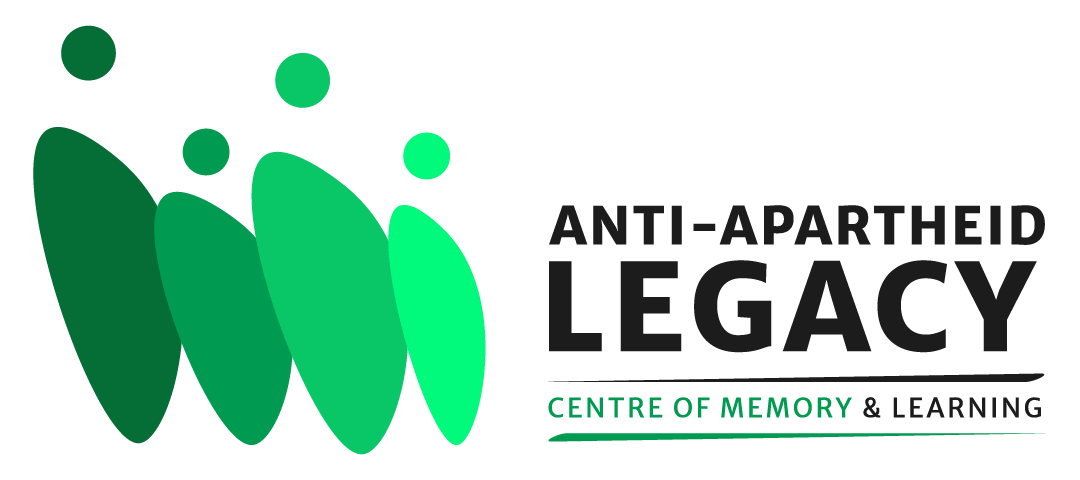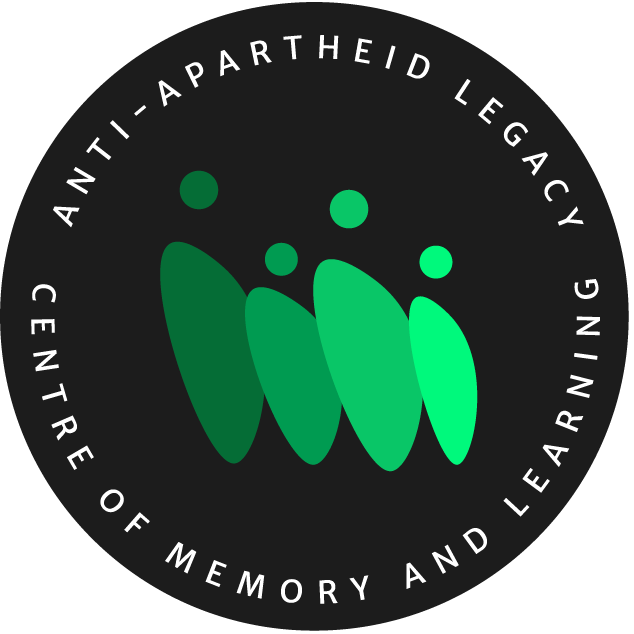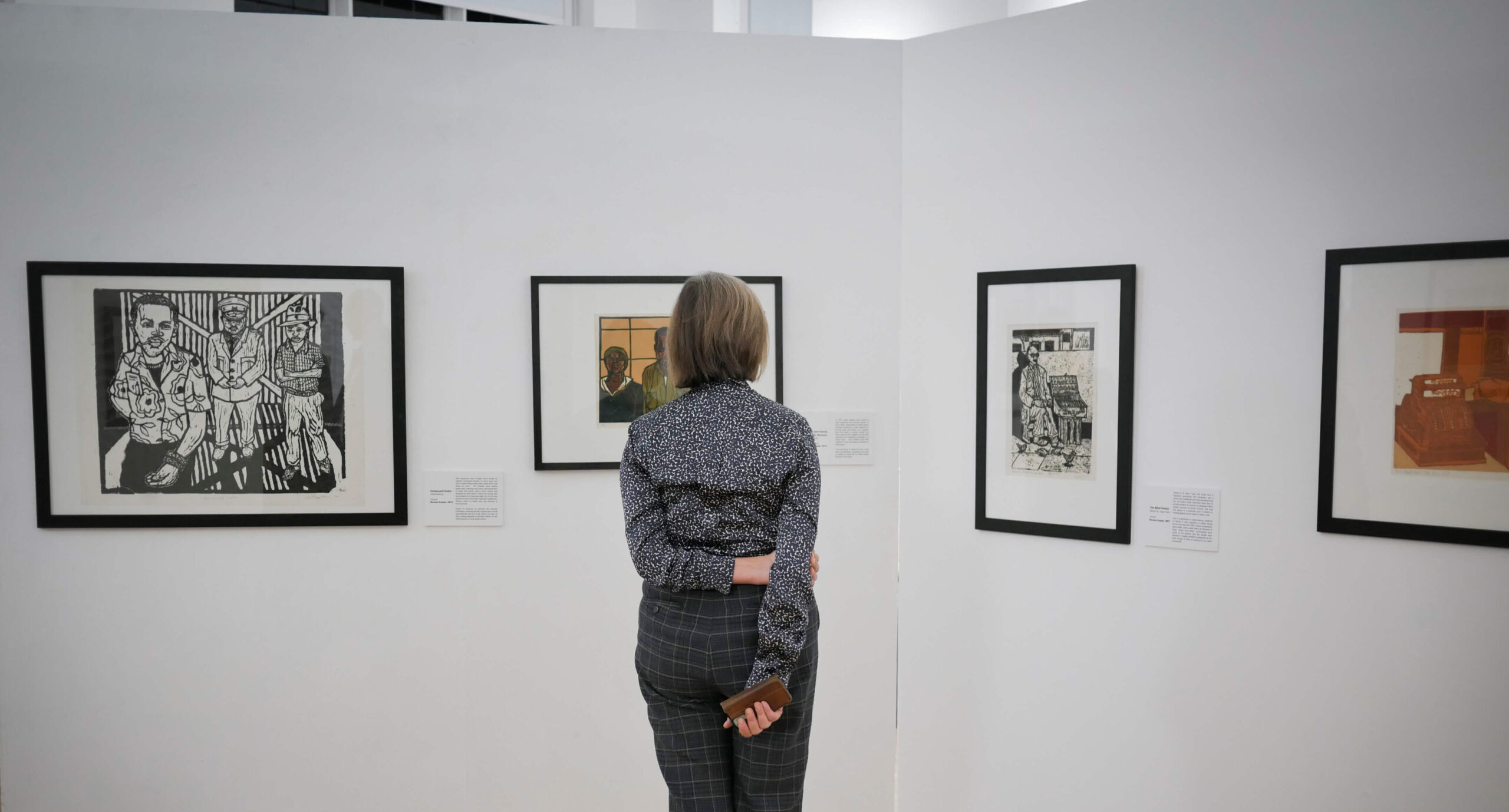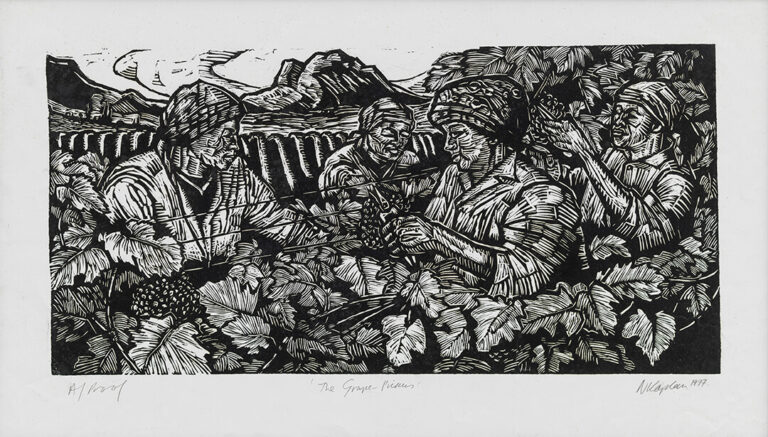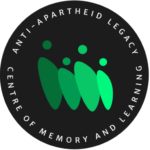Norman Kaplan: All Shall Be Afforded Dignity! John Wesley’s New Room, Bristol. 29th April to 19th June, 2025.
‘Norman Kaplan: All Shall be Afforded Dignity!’
This display of artwork marks 30 years since the first democratic elections in South Africa. Norman Kaplan’s linocuts and prints speak to what life was like under the apartheid regime and remind us of the enduring relationship between art and protest.
‘All Shall Be Afforded Dignity!’ is curated around the work (of the same name) that artist Norman Kaplan made in 1996 in response to a call for art to celebrate the Constitution of the new democratic South Africa. More information about the exhibition organisers, Anti-Apartheid Legacy, Action for Southern Africa and The Anti-Apartheid Movement Archives below.
His linocut, All shall Be Afforded Dignity, was awarded the first prize honour and is engraved into a window in South Africa’s Constitutional Court, on permanent display.
Through sharing the linocuts as well as political and satirical cartoons made by Kaplan, during a career that spans apartheid South Africa, exile in the UK, and the hopes of post-liberation South Africa, this exhibition weaves a narrative that explores the interconnected themes of dignity, democracy, and the enduring human spirit. For an online showcase of the works visit https://antiapartheidlegacy.org.uk/resources/exhibitions/asbad/
Showing at John Wesley’s New Room, Kaplan’s prints and political cartoons are displayed alongside items of archival ephemera from the Anti-Apartheid Movement and which highlight some of the Bristol area’s rich anti-apartheid heritage.
John Wesley’s New Room
36 The Horsefair
Bristol
BS1 3JE
Free admission – on display in The Chapel
Monday – Saturday, 10am – 4pm
Closed Bank Holiday Mondays
Access
The exhibition will be displayed on the ground floor of the Chapel. This is fully accessible, reached from both the Broadmead and Horsefair entrances (although please note that there is no disabled access to the chapel gallery due to the 18th century stairs). For more information about access (including Accessibility Guide and a Visual Story) please visit the New Room Website Accessibility Page.
For more information about visiting John Wesley’s New Room, including nearest transport links, see the New Room Website Visit Us Page.
For an online viewing of Norman Kaplan’s work visit the showcase on our website.
The Grape Pickers
Linocut on Paper
Norman Kaplan, 1997
The wine industry developed early in the colonial history of South Africa, first under the Dutch, who imported slaves, and then under subsequent British rule. While slavery was outlawed in 1807, a form of indenture existed until 1840. The capitalist system required access to cheap labour, and farmworkers’ lives were harsh.
Under apartheid the ‘Tot’ system was used to pay workers in cheap wine, which led to severe alcoholism, often to foetal alcohol syndrome, and fractured families. Many years after the end of apartheid, wine farmworkers still need to engage from time to time in industrial action to improve their situation.
Statement from Norman Kaplan read at the opening of the exhibition of his prints and cartoons at John Wesley’s New Room, Bristol, 7th May 2025
Dear friends and comrades,
‘Norman Kaplan: All Shall be Afforded Dignity’ has been organised and presented for display by the Anti-Apartheid Movement Archives, Action for Southern Africa, and the Anti-Apartheid Legacy: Centre of Memory & Learning
A travelling exhibition, ‘All Shall Be Afforded Dignity!’ at John Wesley’s New Room is made possible by National Lottery Heritage Fund and National Lottery Players and the Gibbs Charitable Trust.
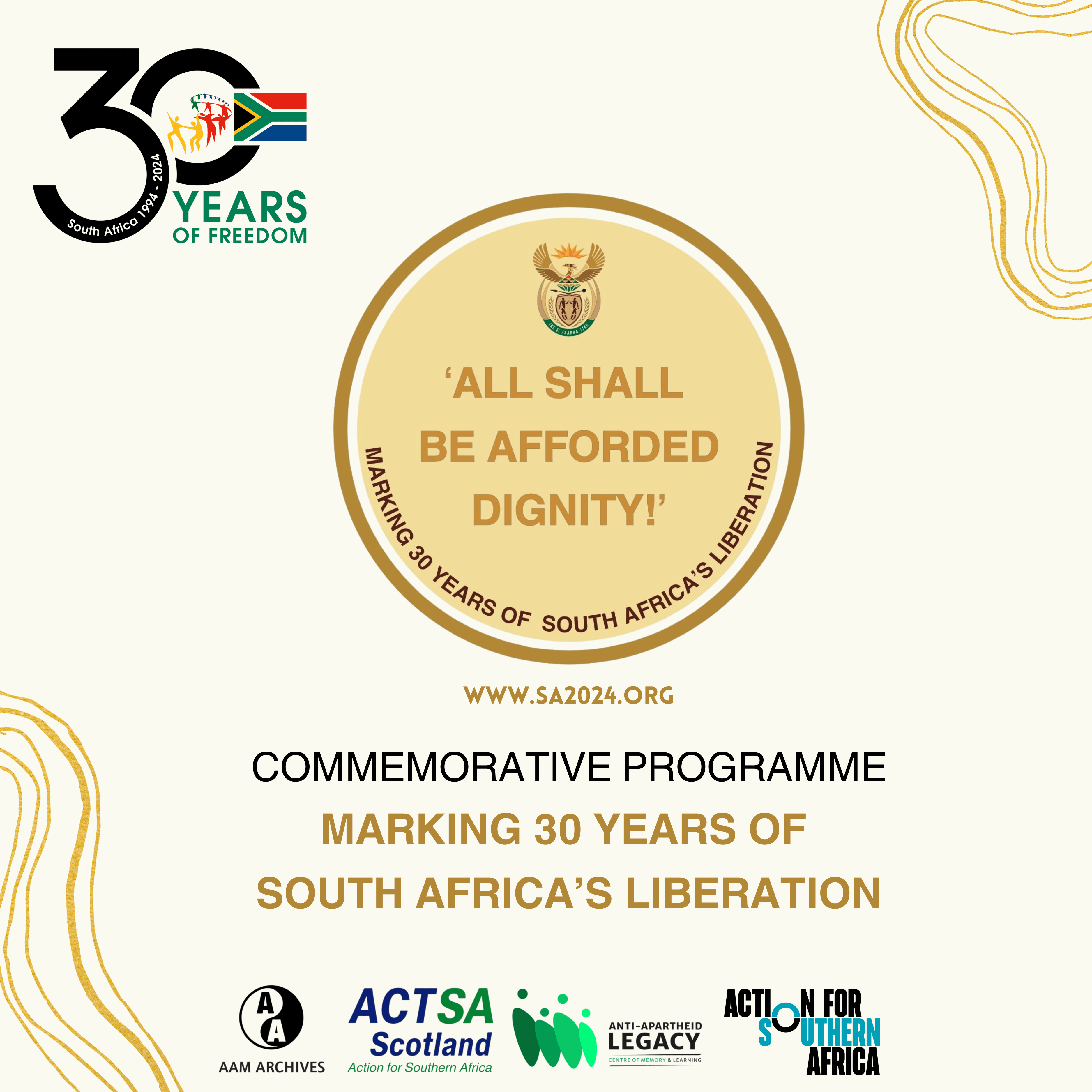
This exhibition is part of the UK wide commemorative programme, marking 30 years of democracy in South Africa. It is convened by Action for Southern Africa and Anti-Apartheid Legacy: Centre of Memory and Learning; with the Anti-Apartheid Movement Archives and ACTSA Scotland, in partnership with the South African High Commission to the UK & Northern Ireland.
“All shall be afforded dignity” is our theme for the programme. It is both commemorative and a call to action for the future.
Our aim is to draw on the spirit of the 1994 election year, where hope with action were the key ingredients to achieving a new dawn for South Africa and for the world. More information about the 30 years anniversary commemorative programme here .
